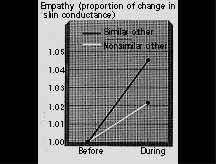 [WesMaps Home Page]
[Course Search]
[Course Search by CID]
[WesMaps Home Page]
[Course Search]
[Course Search by CID]
PSYC201
Psychological Statistics
PSYC201 SP
| Section | Class Size | *Available | Times |
|---|
| 1 | 30 | 0 | Times: .T.T... 8:30AM-9:50AM; |
*The number of spaces listed as available is based on class seats open for
the current phase of registration. Some seats may be taken in previous
phases while others may be held out for subsequent phases of registration.
(Last Updated on Wed Mar 4 05:00:40 EST 1998
)
 Photo Caption and Credits
Photo Caption and Credits
This course provides a general introduction to the use of
statistics in psychological research. Topics will include
descriptive statistics (such as the mean and standard
deviation), probability, and inferential statistics (such as
the t-test and analysis of variance). Special attention will
be given to the underlying concepts and possible uses of
statistical analysis (e.g., experimental design).
MAJOR READINGS
Gravetter & Wallrau, STATISTICS FOR THE
BEHAVIORAL SCIENCES.
Welkowitz, Ewen, and Cohen, INTRODUCTORY STATISTICS FOR THE
SOCIAL SCIENCES (And accompanying study guide).
EXAMINATIONS AND ASSIGNMENTS
There will be three in-class
exams and regular homework assignments. There will be
regular, brief quizzes that will not contribute directly to
the course grade but will help the student (a) identify
areas needing further study and (b) prepare for the exams.
ADDITIONAL REQUIREMENTS and/or COMMENTS
This course must
be taken concurrently with PSYC214.
Unless preregistered students attend the first class meeting
or communicate directly with the instructor prior to the
first class, they will be dropped from the class list.
NOTE: Students must still submit a completed Drop/Add form
to the Registrar's Office.
COURSE FORMAT: Lecture
REGISTRATION INFORMATION
Level: UG Credit: 1.00
Gen Ed Area & Dept: NSM PSYC
Prerequisites:
None
- Section 01
- Dohm, F
- Times: .T.T... 8:30AM- 9:50AM;
- Grading Mode: A/F
- Registration Preference (1 high to 6 low, 0=Excluded) Sr: 1, Jr: 2, So: 3, Fr: 0
- Major Preference Given
Last Updated on MAR-03-1998
About the Photo:
"The effects of similarity on empathy Note that observing a
similar other in pain produced greater arousal than did
observing a non-similar other undergoing the same
experience"
Reference:
Gergen, Kenneth J.; Gergen, Mary M., SOCIAL
PSYCHOLOGY, New York: Springer Verlag, 1986.
Contact wesmaps@wesleyan.edu to
submit comments or suggestions.
Copyright Wesleyan University, Middletown, Connecticut, 06459
 Photo Caption and Credits
Photo Caption and Credits